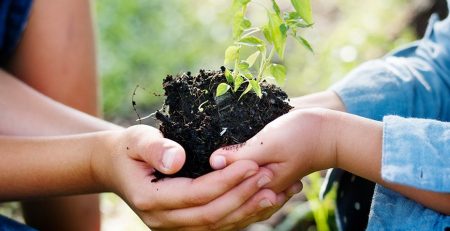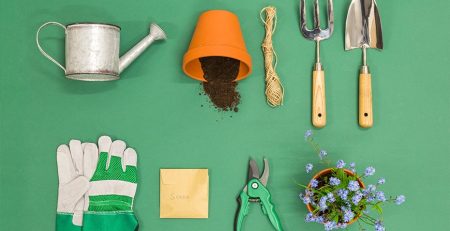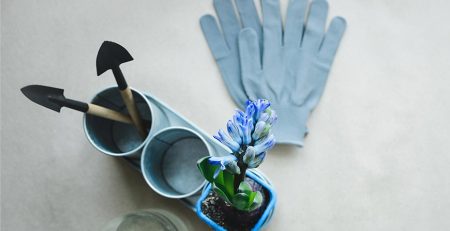Composting
Give Back to Nature: Compost
Composting is easy, natural, environmentally responsible, and it actually has a pleasant earth aroma when aerated properly. If you have never tried it before, you might be surprised at how simple and enjoyable composting can be. Most importantly, composting drastically reduces waste in our landfills. The United States Environmental Protection Agency (EPA) reports that 72% of the municipal waste in landfills is organic and could be composted (wood, textiles/leather, yard debris, food scraps, and paper)1.
The benefits of composting go beyond reducing waste and decreasing hazardous methane gas produced by landfills1. Composting is quite functional as a soil amendment and can improve the physical, chemical, and biological properties of soil, which creates healthier and stronger plants in your garden1. Compost contains the three main plant nutrients (nitrogen, phosphorus, and potassium), as well as healthy bacteria, yeast, and fungi that will help keep your plants strong and even prevent diseases. Recycling organic materials in a compost pile will help keep your plants and soil healthy, so you can take pride in your eco-conscious lifestyle that promotes a greener Earth.
How To Get Started
You can choose to compost indoors or outdoors, and you’ll find many different designs and styles of compost bins in most garden supply stores. Of course, you can always build your own compost pile from items in your garage (chicken wire, scrap lumber, cement blocks, etc). Do a little research to find out the best solution for your home and lifestyle. Here are the basic guidelines for starting your own compost pile2:
- A general rule is to use 3 parts “Brown” to every 1 part “Green”
- Greens: grass clippings, leaves, weeds, kitchen scraps (fruits, vegetables, coffee grounds, tea leaves, etc)
- Browns: dried grass or leaves, cornstalks, straw, wood shavings (with moderation)
- Do not compost: meat, bones, dairy products, ashes, paper
- Keep your compost pile aerated, turning frequently
- Water, water, water! 50-60% of your compost pile should be water. This is a difficult amount to guess, so a good rule of thumb is to make sure your compost feels moist but not soggy – like a wrung out sponge.
Enagic® Water is an outstanding ingredient for compost. Why add tap or bottle water to your fresh compost, which may contain traces of chlorine, lead, and other contaminants? Enagic® Water is clean, filtered, and easily accessible.
To know which water to use for your compost, you should first test the pH of your soil. The ideal soil pH is about 6.3 – 6.8, which is very slightly acidic. If you find that your soil is already too acidic, you should use Kangen Water® to create a healthier balance. If your soil is too alkaline, try Slightly Acidic Water in your compost. Finally, you can use clean Neutral Water in your compost pile if your soil is already balanced perfectly.
Just like Enagic® Water is the healthy choice for you and your plants, it is also the ideal water for your compost pile. Your plants and flowers will thrive beautifully after they’ve been nourished with Kangen Compost!
Vermicompost
Don’t let lack of yard space keep you from composting! You can compost in your own home with vermicompost, which uses red wiggler worms to do the hard work for you. These helpful worms can be purchased at a bait shop or online worm farm. An indoor compost is convenient because you can store it in a lid-tight container in your pantry, allowing for quick, hassle-free food scrap dumping while you are cooking or cleaning up after a meal.
You will need scraps of shredded paper, red wiggle worms, garden soil, Enagic® Water (Slightly Acidic Water, Neutral Water, or Kangen Water®), and food scraps to get your vermicompost started. Red wiggler worms enjoy fruits, vegetables, egg shells, tea bags, coffee grounds, and grains. Vermicomposting takes a little longer than a backyard compost – about 4 to 6 months. Meanwhile, outdoor composting only takes about 3 to 4 weeks to harvest a good batch. But vermicomposting is a great solution if you are limited to a small yard or don’t enjoy trips to the outdoor compost in chilly weather.
Using Your Compost
Finished compost is 100% organic fertilizer, and it is exactly what your garden and indoor plants need to stay healthy (along with Kangen Water® of course)! Your Kangen Compost will help improve the quality, fertility, disease-prevention, and overall health of your soil. For your garden and outdoor plants, add compost as a soil fertilizer from spring to fall. For indoor plants, fill a spray bottle with Enagic® Water, and then add a couple tablespoons of Kangen Compost for an extra boost of nutrients.
Simply put, composting with Enagic® is a healthy choice for you, your plants, and our environment!





